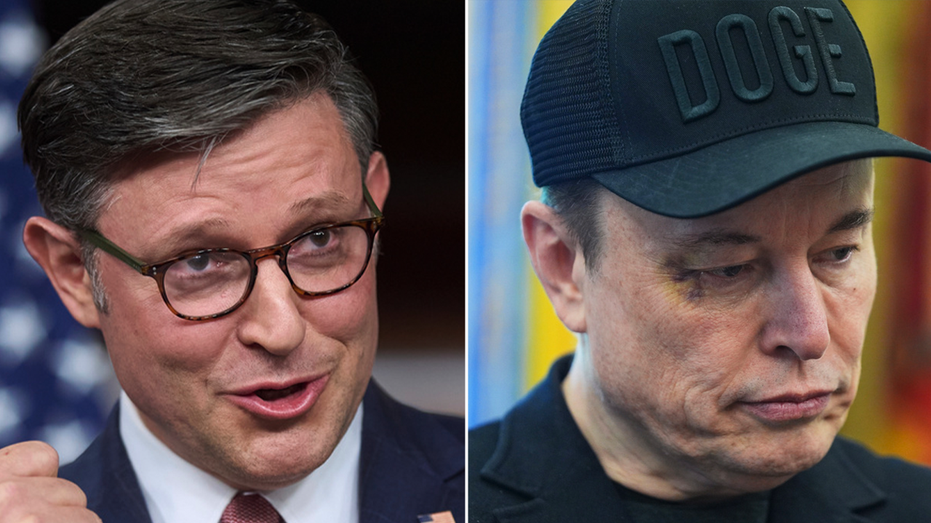Republican Lawmakers Resist Musk's 'Kill the Bill' Initiative to Undermine Trump's Policy Agenda
House Speaker Mike Johnson seeks to mend ties with Elon Musk following turmoil over the Big, Beautiful Bill.

This week, the legislative landscape on Capitol Hill was dominated by escalating tensions over the so-called Big, Beautiful Bill, which rapidly transformed from a Republican showpiece into a nexus of intra-party struggle and high-level personal feuding. What began as a straightforward policy push quickly devolved into a spectacle after tech magnate Elon Musk publicly denounced the bill, igniting an unprecedented row with President Donald Trump and sending Congressional Republicans scrambling to contain the fallout.
The conflict erupted Tuesday, when Musk, in a scathing post, labeled the measure a "disgusting abomination," directing his ire at the 215 House Republicans who supported the bill's passage last month. "You know you did wrong," Musk declared, signaling he would leverage his considerable platform — and influence — against them. In an effort to contain the growing rift, House Speaker Mike Johnson, R-La., attempted to reach Musk personally. But the outreach went unanswered, and the antagonism only intensified as Musk shifted from private talks to a public offensive.
Instead of returning the Speaker’s call, Musk took to X, posting a widely recognized meme depicting Uma Thurman’s sword-wielding character from Kill Bill, accompanied by the caption: "KILL the Bill." The viral message signaled Musk’s intent to galvanize opposition to the legislation, leaving GOP leadership contending with both a media firestorm and a grassroots backlash from Musk’s millions of followers.
The repercussions were immediate and severe for Republican leadership. House Budget Committee Chairman Jodey Arrington, R-Tex., acknowledged the magnitude of Musk’s intervention: "He's got a big voice. He's got a big audience. And more importantly, it's a credible voice. But he's wrong on this issue." Nonetheless, the Republican caucus remained largely resolute, with Speaker Johnson insisting, "We don't have time for a brand new bill," and reiterating that the party "can't go back to the drawing board and we shouldn't."
Yet, the deepening feud created unusual alliances. With Musk now a vocal critic of the GOP-backed bill, Democrats saw an opportunity to further undermine the legislation. Senate Minority Leader Chuck Schumer, D-N.Y., remarked on the irony, openly questioning the Republican willingness to heed Musk’s call given previous animus toward the billionaire. Senator John Fetterman, D-Penn., even quipped about the sudden shift in Musk’s standing among Democrats, highlighting the unpredictable dynamics in play.
At the heart of the controversy lies ballooning concern over federal spending. The Trump Administration’s recent $9.4 billion rescissions request — proposing to claw back already allocated funds, including those targeted at foreign aid and public broadcasting — did little to quell anxieties. Critics, like Rep. Mark Pocan, D-Wisc., pointedly referenced cuts to educational programming, saying, "You've sent us a rescission package worth $9 billion that goes after Big Bird and Cookie Monster." Meanwhile, the Congressional Budget Office (CBO) found that the Big, Beautiful Bill would add $2.3 trillion to the federal deficit over the next decade — a projection Republicans dispute, arguing that factoring in potential savings from Trump’s tariffs would reduce deficits instead.
Some lawmakers suggested that the CBO’s deficit estimate may have triggered Musk’s dramatic opposition. Speaker Johnson questioned the methodology behind the CBO’s numbers and even floated the idea of legislative action to reform the office’s scoring system. However, with the bill’s future hanging in the balance, it became clear that official budget forecasts were only one part of a much larger political puzzle.
As the week wore on, the feud between Musk and Trump escalated further. On Thursday, Musk claimed that the $280 million he spent during the 2024 campaign was crucial in securing Trump’s victory and Republican control of Congress — a statement that divided opinion within both parties. Some Senate Republicans, such as Sen. Rand Paul, R-Ky., openly embraced Musk’s skepticism of the bill, while Democrats dismissed his claims as self-serving "crocodile tears."
In the end, the Speaker conceded the highly public dispute had complicated vote-whipping efforts. "It's not helpful," Johnson admitted, "but I don't think it's changed the trajectory in any way." Yet, many in the GOP recognize the precarious position they now occupy. As Rep. Tim Burchett, R-Tenn., summed up, "They have a choice of going against Trump or Musk."
With razor-thin margins in both chambers, the clash between two towering personalities has left Republican leaders facing a painful dilemma — and the future of the Big, Beautiful Bill now as uncertain as ever.




